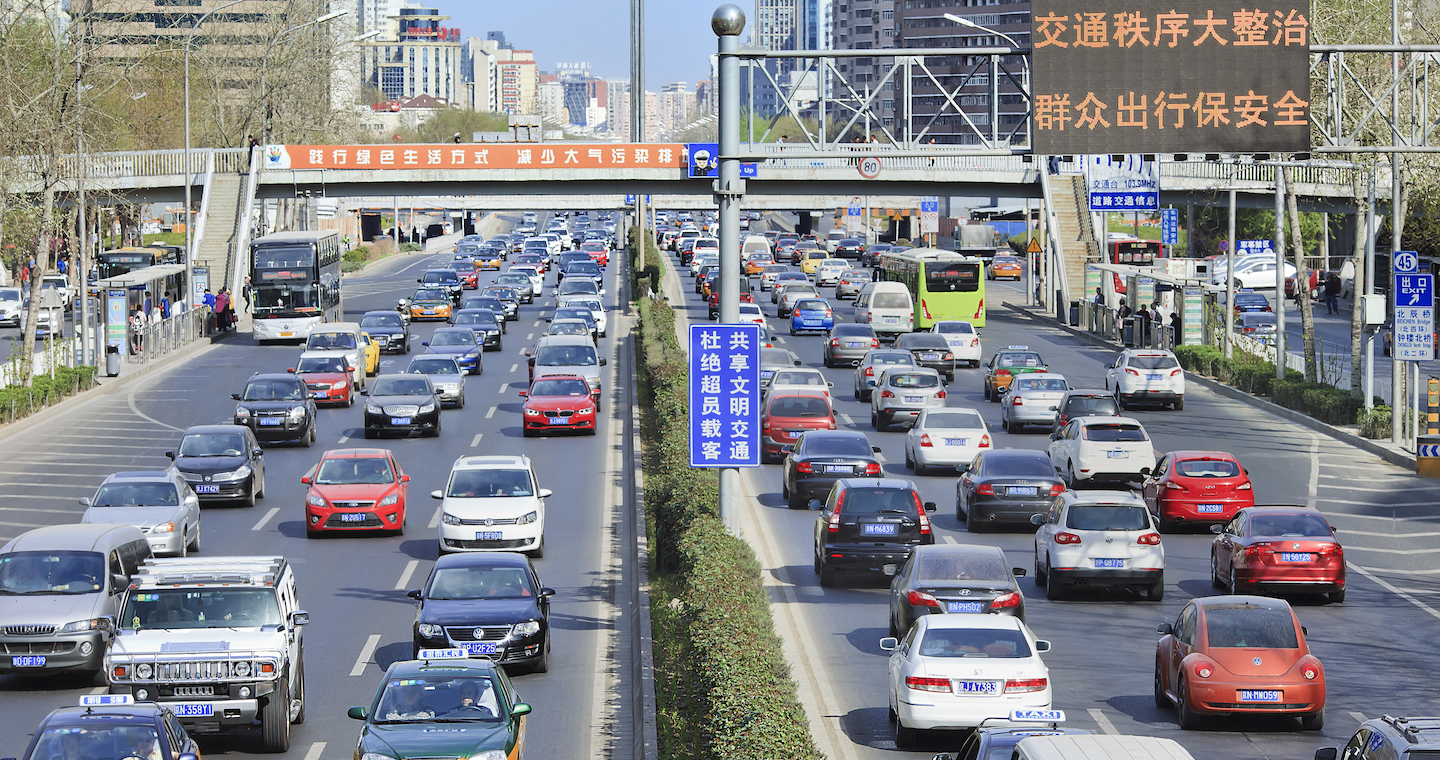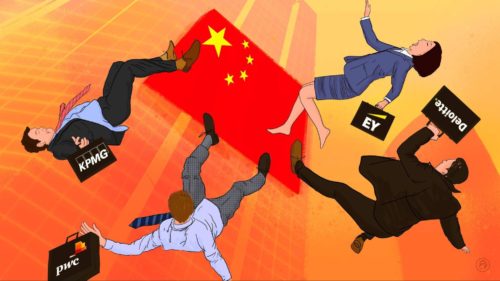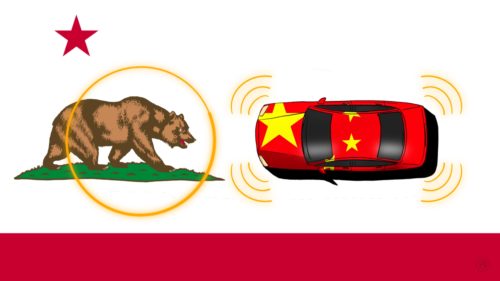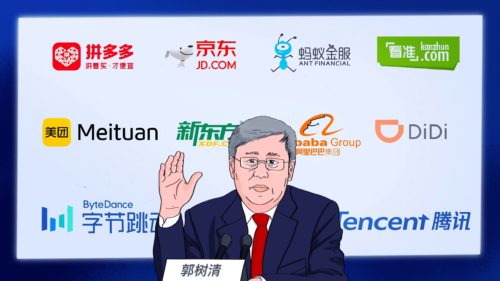Why did Uber China slap its foreign users in the face?
David Wolf, a China technology expert based in Beijing, answers some quick questions about Uber's mystifying and frustrating about-face restricting foreign users of its Chinese app.

In August 2016, the global ride-sharing service Uber gave up on China and sold its Chinese business to local rival Didi Chuxing. Under its new ownership, Uber China continued to operate with its own app, allowing Uber users from other countries to easily hail a ride without downloading any new software. That all changed on November 27, when Didi Chuxing released an update. The Nanfang reported that “the newest version of the Uber China app requires all users to create a new account using a local phone number as well as a valid Chinese online payment system such as Unionpay, Alipay or Baidu Wallet,” meaning that visitors to China will have to rely on taxis. Because Didi Chuxing is used to hail cabs as well as regular cars, getting a taxi without the Didi app has become extremely difficult in most Chinese cities. This means that the changes to the Uber app are a big inconvenience for visitors.
To understand why Didi Chuxing decided to give foreign users this slap in the face and the background to Uber’s failure in China, we talked to David Wolf, a veteran of the China technology scene who lived in Beijing for nearly 20 years, working as a consultant to global companies such as Motorola, Google and Foxconn. David is currently Partner, Asia for Allison+Partners, LLC, and the author of Public Relations in China: Building and Defending Your Brand in the PRC. He now divides his time between China and the U.S.
Jeremy: Why do you think the Didi Chuxing update of the app for China has made it so difficult for foreign Uber customers to use the service?
David: I am both mystified and downright pissed off about it, and about having to get my local friends to call me a car.
I think that including foreigners in the service was simply relegated to the “too hard” pile. Trying to keep up with the changing environment is probably sucking all of Didi’s development resources right now, and sustaining the functionality for foreigners is just not a high priority. We’ve seen the same thing happen with a lot of social apps in China, with the notable and singular exception of WeChat. Even WeChat, though, is unable to link international credit cards or foreign bank accounts. That’s not a technical issue as much as it is a regulatory one.
Which brings up one other important issue. What we miss in all of this focus on Uber is that Didi Chuxing itself operates in a brutal regulatory environment. Didi may be local, it may even be large, but it is not owned or controlled by the government, so while it is more secure than Uber, it faces huge challenges from which it is not protected. Those challenges include the political influence of the taxi industry and growing interest from regulators ranging from Li Xiaopeng’s Ministry of Transport to the Ministry of Finance.
That kind of attention complicates everything for Didi, and it’s going to be a lot less nimble in the future as a result.
Jeremy: You recently tweeted: “Uber did plenty of things right in China. The problem is that it got some very important things wrong. Hubris? Arrogance?” What did they do right? What exactly did they do wrong?
David: Let me qualify this first by saying we’re early days on the Uber China post-mortem, so we’re working with imperfect information, hence my question marks in the tweet.
I think Uber judged the market correctly, that there is a group of people who are looking for an experience that is better/different than a simple taxi ride, but don’t want to deal with hei che and don’t have access to private drivers. They were right to work with local partners, and they were right to take a city-by-city approach. The fact that their service will be missed by so many – myself included – is a testament to what Uber did right.
They made several mistakes, but four of them lead the way.
First, they came into China with a very high profile – press conferences, big announcements – promising to disrupt the market. That sort of behavior tends to bring about three outcomes. First, it attracts the attention of potential competitors before you’ve even established a market. As a result, Didi was ready for them. Second, it attracts the interest of the government, whose first reaction is to start looking into what you are doing, and then throw roadblocks in your way. And third, it creates investor expectations that over time begin to drive operational decisions in China, when local market conditions should be doing that. The guns were pointing at Uber from front, side, and behind before they sold their first ride.
Second, they misjudged the degree to which government policy could limit and curtail their operations in China. Changing government policies played a key role in their ultimate decision to fold their tent in China. Clearly, they were either unaware of the degree to which the government would object to a disruptive foreign interloper in the urban transit space, or they hoped their local partner could shield them. You can assign some of the blame to the government, but it is not clear they did enough to help themselves.
Third, while they were correct to find local partners and set up a local operation, they delegated too much control of some key functions to the in-country team. I know of at least one key department of the business where the highly competent global team was restrained from intervening to help the local folks, who were clearly out of their depth. I get not wanting to upset local partners, but that sort of thing is just foolish – common though it might be.
Finally – and this is the kicker – they failed to make a case to either the market or to the government as to what Uber brought to the market that a local company couldn’t do just as well, if not better. Once Didi was up and running with competing services, what did China lose if Uber took its bat and went home? No foreign company in China can operate there for long without understanding and effectively communicating its unique role and value in China’s economic quilt. In the end, Uber’s sole value was to create a market that could be easily filled by local players. Once it did that, it was politically and economically obsolete.
Jeremy: Do you currently see any bright spots for foreign tech firms in China?
David: Near term, no. China’s growing reliance on techno-nationalism and soft protectionism are going to combine to make 2017 the most difficult year in two decades for foreign tech firms in China.
There are still opportunities in some key sectors, especially where local competition is good, but not as good as they think they are. The key for foreign firms in China will be to continue to innovate in ways that are in desperate need locally.
But I really see the battlefield shifting. For the last 30 years, the story has been about foreign companies winning in the China market. The story for the next 30 years is going to be beating Chinese companies with global ambitions and the willingness to invest in innovation and relationships. The value of operating in China will be less for the profit than for the ability to understand and opportunistically agitate, distract or weaken Chinese competitors in their home market so that they are less formidable abroad.






